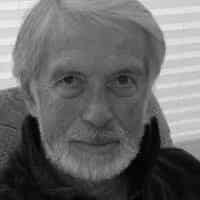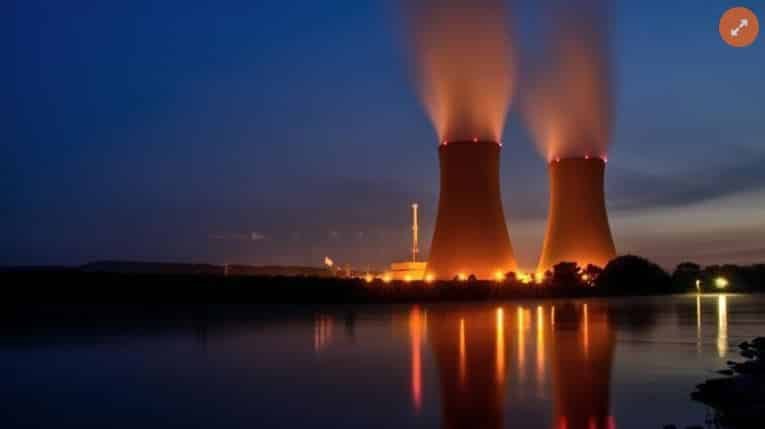The warring parties can’t/won’t agree
In our crazed world run by political retards who glory in war and destruction and care little for the terrible carnage and human misery as long as they achieve their demented goals, it’s nice to see at least one group urging peace – even if it’s localized – and actually doing something about it.
After a period of silence, the Zaporizhzhya Protection Project sent an update. Steering Committee chair John Reuwer writes: “As long as the people of Ukraine and Russian conscripts are suffering from this war, as long as people of Europe are suffering from fuel prices, and many in the global south suffer from food shortages, and as long as large parts of Europe remain in danger from a disaster at this huge nuclear power plant, we want to continue to search for ways to keep people safe.”
Zaporizhzhya is a clapped-out Soviet-era nuclear plant with six old fission reactors surrounded by 38 years of nuclear waste in unprotected cooling pools and dry casks. It first came online in 1985 and is the largest in Europe. The war is going on around it and artillery has caused damage to various structures including the backup power supply lines needed to keep the reactors and their waste management systems from meltdown or fire. It has been in Russian hands since February last year although it is owned and operated by the Ukrainian state entity Energoatom, whose personnel still have the day-to-day management.
The International Atomic Energy Agency (IAEA) negotiated an inspection that began on 31 August, checked the plant for safety, and witnessed the shut-down of the last reactor, and the reconnection of backup power to the coolant system. A demilitarized zone of 30km around the site was recommended and negotiations have met with little success so far, leaving thousands of civilians at serious risk if nuclear material were to be leaked or released.
Last October, readers may remember, a project was launched to create a Zaporizhzhya Protection Team to monitor such a safe zone if it were to be established. The World BEYOND War directors behind the idea were well aware of the difficulties, for example:
- Ukraine is reluctant to demilitarize its sovereign territory for fear of ceding it to Russian occupation. Russia is reluctant to demilitarize such a strategic asset (read ‘mega-liability’) that its army now controls.
- Armed UN peacekeepers would simply add more weapons to an already volatile situation.
- The IAEA inspectors who went unarmed into occupied territory to preserve the lives of thousands of civilians have set an impressive example. It is therefore felt that neutral and unarmed civilians, suitably trained and in sufficient numbers, could monitor a demilitarized zone, without giving military advantage to either side, until the fate of this site is eventually decided by the fortunes of war or negotiation. Their mission would be strictly to safeguard humanity with no other agenda. Hopefully, this would attract global support.
Despite a cool reception so far by the powers-that-be, the Project Team say that far from fading away they’ve been busy researching the situation, contacting parties concerned with the safety of the plant, pondering how best to assist in providing safety and defining what skills would be useful in doing so, developing training for volunteers, and delivering online training to the 50 volunteers they already have. “We have been in touch with officials from the United Nations, including the International Atomic Energy Agency (IAEA), the Organization for Security and Cooperation in Europe, and non-governmental organizations, including those with experience in unarmed protection methodology. We have talked with people near the plant who suffer not only from the war, but are also very aware they will be the first victims of a radiological disaster”.

What the Team knows at this stage:
- The danger is as high as ever, with fighting in the vicinity causing intermittent loss of power for critical cooling. The Director General of the IAEA warns how incredibly dangerous this is, and calls again for a safety zone around the plant, but has been unable so far to make this happen.
- The courageous IAEA inspectors are in their seventh month inside the plant ensuring its safety from a technical standpoint. They are unarmed in a war zone and in extreme danger. None has been killed but their freedom is threatened. “They remain our inspiration.”
- Both sides – Ukraine and Russia – agree that the nuclear plant cannot be exposed to direct military attack. Ukraine wants to put the plant under UN Peacekeeper control but Russia is resisting, “so the question becomes what would induce Russia to create a safety zone around the plant until the fate of the plant is decided by military or diplomatic means?”
- Those involved in high-level negotiations for a safety zone say they have ample resources and personnel at their disposal to implement it.
The Team’s trainees have been learning about the history of Ukraine, the root causes of the conflict and the dangers to the power plant is exposed to. They have also been inspired by thoughts and advice from veterans of the military, UN peacekeeping, the OSCE’s Special Monitoring Mission to Ukraine, and unarmed civilian protection organizations.
While the Team is without a mission mandate it has a core of 25 people representing eight countries on five continents in readiness to respond to any call to lessen the harms of war.
“We are planning to send a small delegation to Ukraine in the near future,” says John Reuwer, “to meet with people as close to the nuclear danger as we can get in order to open space for people to be heard [meaning civilians living in the area, I think] and to tap into their courage, resilience, and ideas they may have about what could be done under these terrible circumstances. We are also seeking access into areas occupied by Russian forces.”
Wishing the Protection Team every success in what they’re trying to do.
©Stuart Littlewood, 20 March 2023

After working on jet fighters in the RAF Stuart became an industrial marketing specialist with manufacturing companies and consultancy firms. He also “indulged himself” as a newspaper columnist. In politics, he served as a Cambridgeshire county councilor and member of the Police Authority. Now retired he campaigns on various issues and contributes to several online news & opinion sites. An Associate of the Royal Photographic Society, he has produced two photo-documentary books – Paperturn-view.com.
Also, check out Stuart’s book Radio Free Palestine, with Foreword by Jeff Halper. It tells the plight of the Palestinians under brutal occupation and explains to me why the Zionists who control Israel should be brought before the International Criminal Court.
Stuart’s Very Latest Articles: 2023 – Present
ATTENTION READERS
We See The World From All Sides and Want YOU To Be Fully InformedIn fact, intentional disinformation is a disgraceful scourge in media today. So to assuage any possible errant incorrect information posted herein, we strongly encourage you to seek corroboration from other non-VT sources before forming an educated opinion.
About VT - Policies & Disclosures - Comment Policy





reactors were shuttered several months ago; sistem does not produce power for the grid..
Comments are closed.